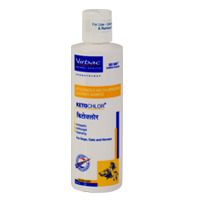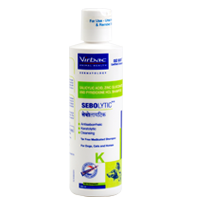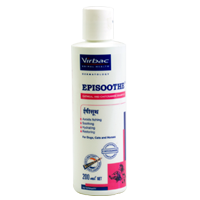
Best Dog Medicine for Skin Infection Relief
Give your pet the care they deserve with Virbac’s dog medicine for skin infection—specially formulated to address a range of skin issues, including canine dermatitis, fungal infections, and hot spots. Our dog skin infection treatment range includes medicated shampoos, ear cleansers, and antifungal cream for dogs, offering targeted relief and long-lasting protection.
Topical Dermatologicals (Skin/Ear)
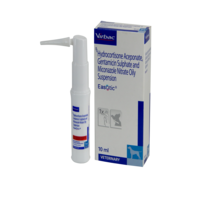
EASOTIC® (hydrocortisone aceponate, miconazole nitrate, gentamicin sulfate) Otic Suspension for Dogs
1. Which tablet is best for dog skin infection?
The best dog medicine for skin infection depends on the infection type. For bacterial infections, veterinarians often prescribe Cephalexin or Clindamycin, while Ketoconazole or Fluconazole are commonly used for fungal infections. Always consult a vet for accurate diagnosis and treatment.
2. How long does it take for a dog’s skin infection to heal?
Healing can vary depending on the cause. With the correct dog skin infection treatment, you might see improvement within a week. However, full recovery—especially in chronic or fungal cases—can take 3–6 weeks. Using the right antifungal cream for dogs or medicated shampoos consistently is key.
3. Can a dog’s skin infection spread to other pets or humans?
Yes, especially fungal infections like ringworm, which are highly contagious. While bacterial infections are generally less infectious, maintaining good hygiene, isolating the pet when necessary, and following the vet’s instructions are crucial.
4. What types of skin infections can these treatments help with?
Virbac’s dermatological range targets a variety of skin issues including:
- Canine Dermatitis
- Fungal Infections (e.g., ringworm)
- Parasitic Dermatitis (caused by mites or lice)
- Hot Spots and Moist Dermatitis
- Allergic Skin Reactions

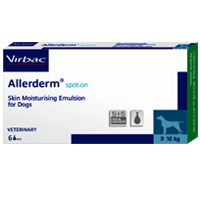
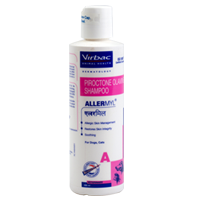

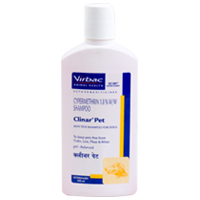
.png)
